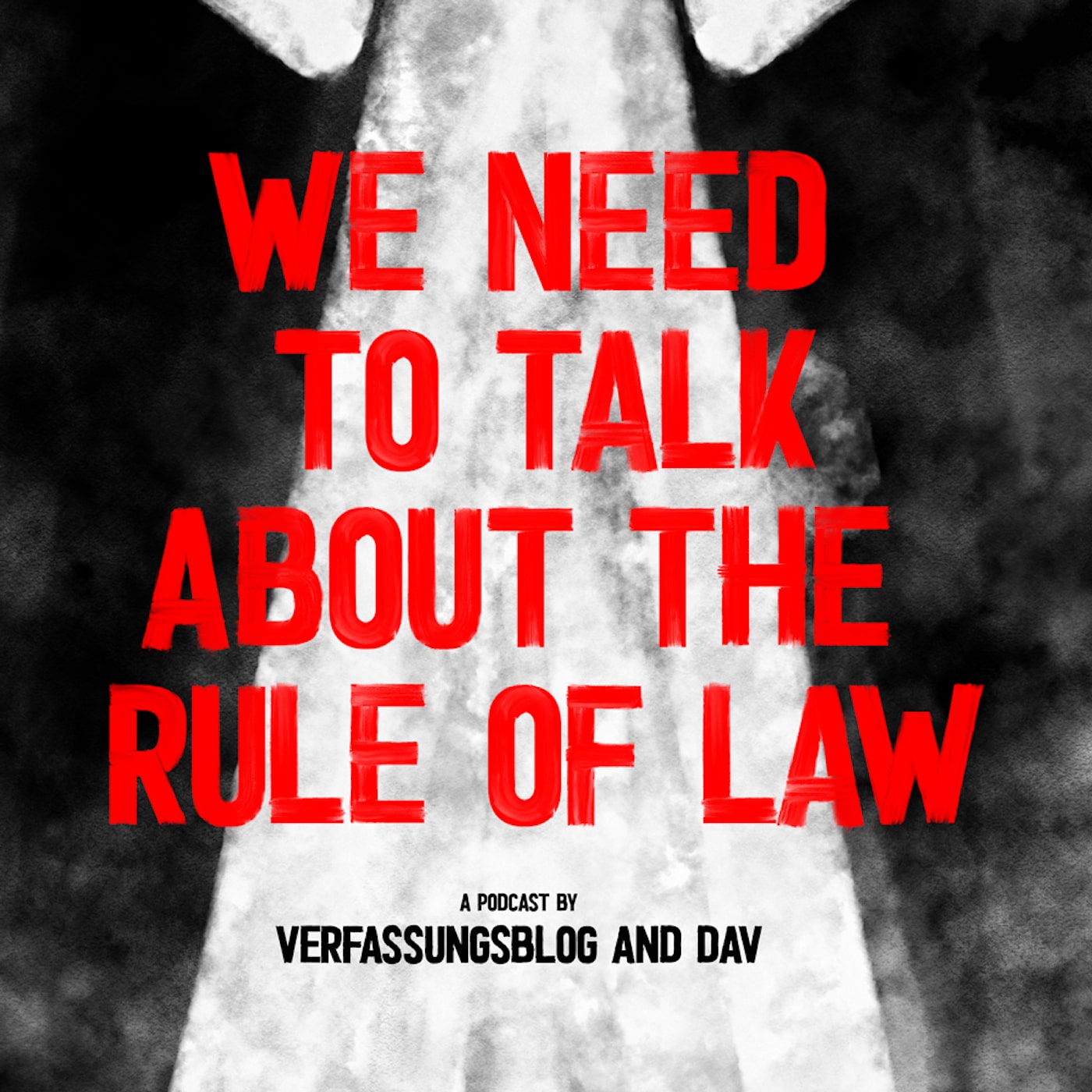
20.8K
Downloads
20
Episodes
Independent courts, judges who will withstand political pressure and rule against the will of the government if the law demands it. It’s called the rule of law, and as long as you have it, you rarely notice it. If you don’t have it, you’ll know what you miss – but then it’s too late. We need to talk about the rule of law because in a growing number of EU member states, the rule of law is already severely damaged - and we will all feel the consequences. We need to talk about the rule of law as Europeans, among Europeans. This is what we, Verfassungsblog and Deutscher Anwaltverein, want to do with this podcast. Twelve weeks, twelve episodes: Every week we invite a number of high-profile political and legal actors and experts to discuss the most urgent aspects of this topic. If you want to be part of this debate, please feel warmly encouraged, do send us your question, use the hashtag #lawrules or send us a speech memo on our Instagram account (@verfassungsblog).
Episodes

Friday Dec 09, 2022
#DefendingTheDefenders – Episode 3: Afghanistan
Friday Dec 09, 2022
Friday Dec 09, 2022
When the Taliban took over power in Afghanistan in the summer of 2021, it was a disaster for women. Immediately, they were stripped of their rights, in particular their political rights. In the third episode of #DefendingTheDefenders, a podcast by Deutscher Anwaltverein and Verfassungsblog, we talk to Shabnam Salehi about the human rights situation in Afghanistan and the rights of women in particular.
Shabnam describes the years leading up to the Taliban coup as a golden era of women’s rights. At the initiative of human rights activists, the government had taken many steps to promote and protect women and their rights. Even more importantly, women have been educated about their rights. While there were many challenges for human rights activists during these years, Shabnam says, a lot of progress has been made. After the Taliban gripped power, they immediately began to push back on women’s rights, but Shabnam explains what the perspectives of human rights activism in and for Afghanistan are and why she remains hopeful.
In the second segment of this episode, we talk to Matthias Lehnert about the shortcomings of the German and European migration law system. The Afghanistan example shows a slow system designed to prioritise perceived security issues over human rights in some cases, Matthias says. Current regulatory proposals also reveal that the work of attorneys is perceived as a threat to this priority rather than an execution of the right to access to justice.
Guests:
Shabnam Salehi is a scholar and a prominent women’s rights activist from Afghanistan. She has been an Assistant Professor at Kabul University and a Commissioner and Head of the Women's Rights Promotion and Protection Unit in the Afghanistan Independent Human Rights Commission. Currently, she is a Visiting Researcher at the University of Ottawa.
Matthias Lehnert is an attorney-at-law in Berlin.
Host:
Lennart Kokott is a Research Assistant at the Chair for Public Law and Comparative Law at Bucerius Law School in Hamburg.

No comments yet. Be the first to say something!